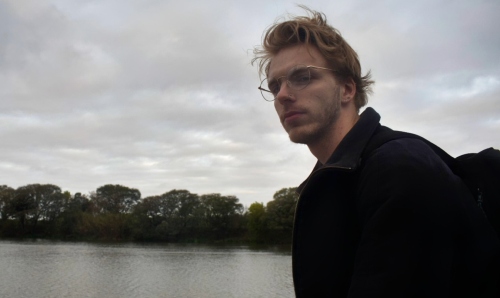Valentina Guevara Prize
Every year, CLACS awards the Valentina Guevara Prize, which celebrates exceptional student scholarship on Argentine topics across all academic disciplines.
While primarily aimed at master's-level students, the prize also welcomes outstanding submissions from final-year undergraduates. Any student enrolled at a UK university during the current or previous academic year is eligible to compete. Essays may be submitted in either English or Spanish, with a maximum length of 15,000 words including notes and references. The prize was established through a generous donation by Cecilia Pardiñas-Guevara.
Previous recipients:
Manuela Crivelli (University of Oxford, 2024): “On Monstrous Mothers and Maternal Monsters: Considerations on Motherhood in La infancia del mundo by Michel Nieva”
In her analysis of *La infancia del mundo*, Manuela examines how the novel challenges traditional conceptions of motherhood. Through its incorporation of monstrous figures, the text opens possibilities for understanding motherhood as an experience that transcends conventional boundaries—whether between genders, species, or the natural and technological realms. The analysis centers on the body's physical reality, arguing that while bodies can be sites of vulnerability and violence, they simultaneously harbor the capacity for resistance and the disruption of established norms.
Dylan Bradbury (The University of Manchester, 2022): "‘Our way of speaking is different’: Sound, Space and the Communication of Indigenous Identity in Argentina"

"I was very pleased to be awarded the Valentina Guevara Prize in 2022 by Cecilia Pardiñas-Guevara and CLACS, for the most original essay on any Argentine topic. The submission I chose was my Master's dissertation, which explored how Indigenous Mapuche cultural producers in Argentina articulate their cultural identities by drawing links between sound and space. I did this by examining three recent examples of Mapuche media: podcast 'Müpüley Taiñ Mapudungun' (CPR, 2016), album 'Mankewenüy' (Anahí Mariluan, 2018) and docuseries 'Mapuzungun: El Habla de la Tierra' (CPCA, 2020).
I analyse the aesthetic and discursive strategies of each work, as well as their varied conditions of production, drawing links between Mapuche cosmology, their acoustic interventions in urban and rural spaces across the provinces of Buenos Aires and Río Negro, as well as the use of sonic markers to communicate cultural difference in the specific national context of Argentina.
The essay worked as a preliminary study for my PhD research, in which I have continued to investigate the politics of Mapuche identity through an "auditory cultures" framework. The earlier focus on links between sound and space became one part of a wider analysis that incorporates the Mapuche language, orality, music and sound recording across a broader timeframe, discussing various sources from the end of the nineteenth century until the contemporary era.
Completing the essay for which I won the award in 2022 was crucial to the development of my overall thesis, which makes an original contribution by showing how Indigenous identities in central and southern Argentina have been in a variety of contexts shaped by aurality—that is, the conditions of listening, relating to and using sound as determined by a contested sensory politics."
